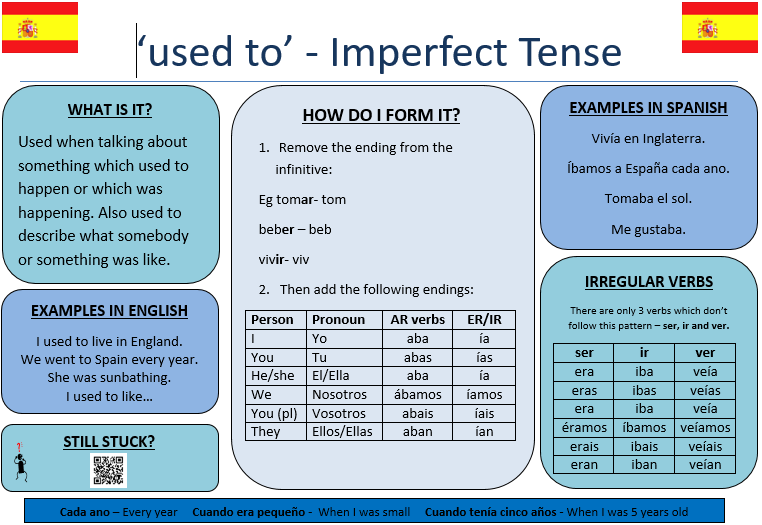

Some time markers that work with tense are: In simple terms, to describe past circumstances or how something used to be.


When it comes to past tenses in Spanish, the imperfect is used to provide background information.
#SENTENCES IN PAST TENSE SPANISH HOW TO#
However, they differ in how they convey the message and what they focus on.īelow is a more detailed explanation of when and how to use each tense: Past imperfect When to Use Different Spanish Past TensesĪs their name suggests, Spanish past tenses convey that an action occurred in the past. Take Note: Even though it refers to an action that started in the past, the present perfect is often not considered a past tense because it also refers to or has relevance in the present. In the sections below, you’ll learn more about these differences. The past participle in Spanish is formed with the endings -ado (AR verbs) and -ido (ER and IR verbs).Īlthough they all refer to the past in Spanish, each of these tenses is used in specific situations. In other words, the formula for this tense is haber in imperfect form + past participle. The Spanish past perfect tense is formed with an auxiliary verb and a past participle. To make things easier, I’ve included real-life examples and additional resources to help you master this topic. To become conversationally fluent, you cannot overlook any of the Spanish past tenses.


 0 kommentar(er)
0 kommentar(er)
